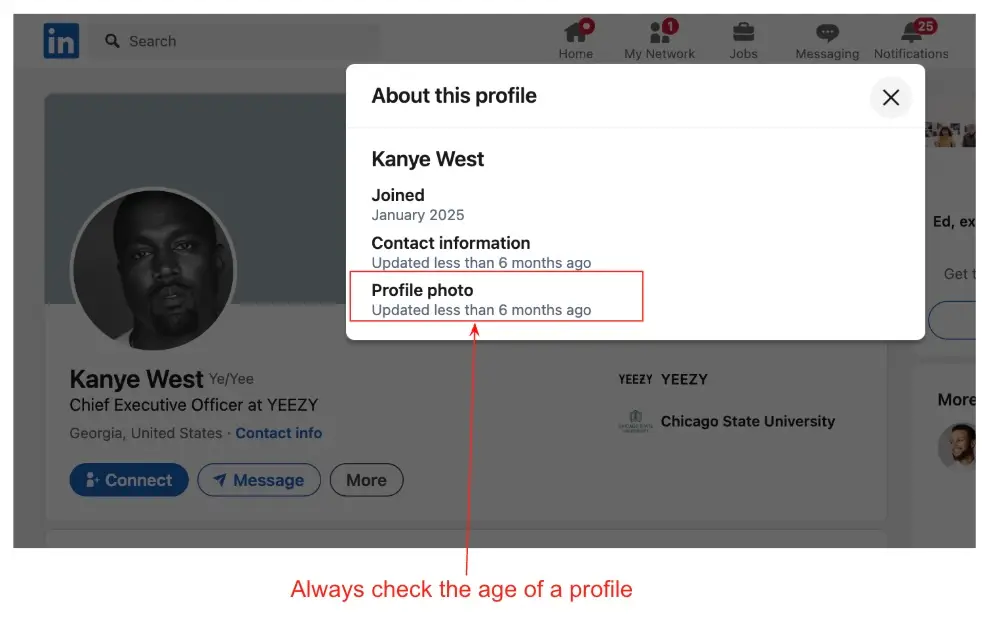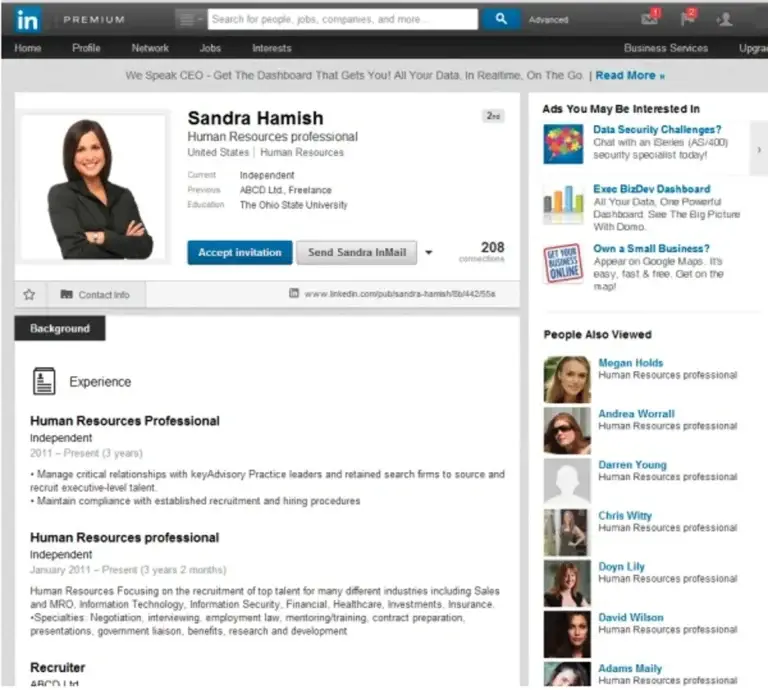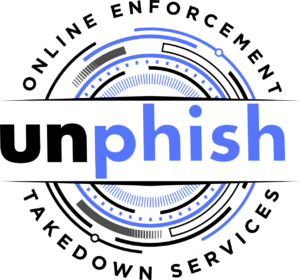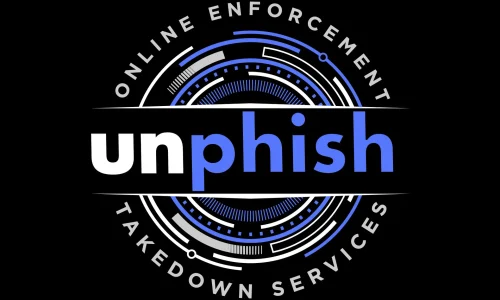

Fake Jobs: Imagine a group of “graduates” arriving for their first day—after weeks of fake onboarding—only to be told the company has no record of them, and the job doesn’t exist. This alarming scenario is becoming increasingly common as fake LinkedIn accounts rise rapidly and scammers exploit job boards and platforms to impersonate trusted brands and lure victims with bogus roles.
LinkedIn reported that between January and June 2024, it removed nearly 142 million fake accounts proactively, with another 877,000 taken down following member reports. And that’s just the ones they caught—many fake profiles still slip through the cracks. With numbers like these, brands must remain vigilant and take proactive steps to ensure they’re not being impersonated or used to promote fake job advertisements.
What are Fake Job Advertisments?
Very simply they are roles advertised by third parties pretending to be, or represent, a brand to lure victims into paying for training and induction courses to qualify them for the role. They structure the recruitment process in then same way a legitimate HR organisation would, including interviews (sometimes multiple) pay negotiations, letters of offers contracts etc.
Scammers often impersonate HR personnel from well-known brands or pose as recruitment agencies claiming to represent them. They reach out with friendly messages offering jobs or interviews to build trust. Once the victim is engaged, the scammers claim a mandatory training course is required before starting. Victims are then asked to pay upfront for this so-called training—only to later discover the job doesn’t exist and the scammers have vanished with their money.
These scams frequently target international students and young graduates seeking entry-level or trainee roles. This group is particularly vulnerable, as they often lack experience navigating the recruitment process and may miss red flags. One of our clients had a group of supposed “graduates” show up for their first day—after completing weeks of fake onboarding—only to learn there were no such roles at the company.
The Anatomy of a Job Scam

Phishing Emails Fraudulent emails claiming to be from reputable companies lure victims into providing sensitive information.

Fake Job Listing Scammers post fake job ads on legitimate job boards or create fake websites mimicking well-known brands.

Urgency Scammers will pressure you to act or respond quickly. Slow down. It's a clear red flag.

Too Good to be True The job offer comes unusually fast and includes a compensation package that's far more generous than the norm.

No Face2Face Meeting All engagement is through chat or email. You never meet the recruiter.

Payment for Training: Victims are asked to pay for training materials, background checks, or other non-existent services

Always check the age of a Profile
LinkedIn now displays when a profile was created—a useful tool for spotting fakes. Scammers often set up fresh profiles to pose as recruiters or company representatives. If you’re contacted by someone whose profile is only days or weeks old, be cautious. A legitimate recruiter will usually have a longer history, connections, and activity. Always verify before sharing any personal information.


Educating Staff to Monitor for Fake Profiles
Staff members—especially those in HR, recruitment, or public-facing roles—are increasingly being impersonated by scammers to lend credibility to fake job offers or phishing attempts. It’s essential that your team knows how to monitor for and respond to these impersonations.
Encourage staff to regularly search their names on platforms like LinkedIn, Facebook, and X (Twitter) to check for fake accounts using their name, photo, or job title. They should look out for profiles with minimal connections, recently created accounts, or inconsistencies in job history. If a fake profile is found, they should report it immediately through the platform’s impersonation reporting process and notify your internal security or brand protection team.
Providing clear internal guidance, periodic reminders, and a channel to escalate concerns helps ensure your brand and staff are protected from impersonation scams.
How Can Brands Protect Themselves

1. Monitor your online presence Regularly monitor job boards, social media, and other online platforms for fraudulent job listings using your brand name. Employ advanced monitoring tools and services to track mentions of your brand across the web. This can help you identify and address scams before they escalate.

2. Educate Job Seekers Create awareness among job seekers about the proper channels for applying to your company. Clearly outline the official process on your website and caution against unofficial job listings. Use your social media platforms to share tips on recognizing job scams.

3. Collaborate with Job Boards Partner with job boards and request them to verify job postings using your brand name. Establish a clear protocol for reporting and removing fraudulent listings.

4. Implement a Takedown Solution Work with a brand protection agency like brandsec to implement a takedown service. Our team can quickly and efficiently remove fraudulent content, minimizing the damage to your brand. We use advanced AI-driven tools to identify and eliminate fake job listings across various platforms.

Fake Job Protection with Unphish
Job scams pose a significant threat to brands and their reputation. However, by taking proactive measures, educating job seekers, and leveraging the expertise of a brand protection agency, you can effectively safeguard your brand against these malicious activities. Brandsec’s Unphish helps brands monitor, protect, and maintain their integrity in the face of evolving threats. We can quickly discover fake jobs, and work with the job board agency to remove them before they scam prospective employees.
About brandsec
brandsec is a team of highly experienced domain name management and online brand protection experts. We provide corporate domain name management and brand enforcement services, helping brands eliminate phishing platforms across the internet. Supporting some of the largest brands in the region, we offer innovative solutions to combat threats across multiple industries.



